Architecture and the Political
Fourth International Symposium on Architectural Theory
November 10–12, 2011 Beirut, Lebanon
Speakers
Keynote Speaker

David Cunningham
Metropolitics and the ‘Emblematic Significance’ of Architecture
David Cunningham is Deputy Director of the Institute for Modern and Contemporary Culture at the University of Westminster, and an editor of the journal Radical Philosophy. He has published widely on modernism, aesthetics, and architectural and urban theory, in publications including Architectural Design, City, Journal of Visual Culture, New Formations and SubStance. He is currently writing books on theories of the metropolis and on imagining capitalism.
Speakers

Libero Andreotti
Politicizing History: The International Movement for an Imaginist Bauhaus
Libero Andreotti is Professor of Architecture at the Georgia Institute of Technology and was until recently the Resident Director of the Georgia Tech Paris Program a the Ecole Nationale Superieure d’Architecture de Paris La Villette in France. He is the author of Le Grand Jeu à Venir : écrits situationnistes sur la ville (Paris, Editions La Villette 2007). His writings have appeared in architetural journals such as Grey Room, October, JAE, and Lotus International. His latest book Spielraum : Benjamin et l’architecture (Paris, Editions La Villette, 2011) is expected out in Fall 2011.
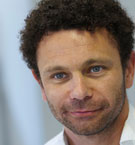
Graham Cairns
Imaging the Political Through Architecture
Graham Cairns is the Head of Architecture and Interior Design at Writtle School of Design in Essex. He has taught at Universities in the UK, Spain, Mexico and South Africa and has worked in architectural studios in London and Hong Kong. In the 1990s he ran a performing arts, Hybrid Artworks, and specialised in video installation and performance writing. He has presented papers at various international conferences and has published on film, architecture, interior design and advertising. He has published 2 books: The Architect Behind the Camera, 2007 and Deciphering Art, Architecture and Advertising, 2010.
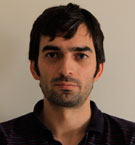
Adrià Carbonell
Towards a Political Urbanism: Architecture and Democratic Objectives
Adrià Carbonell is an architect currently working and living in Doha, Qatar. Having graduated from the ETSA La Salle (URL, Barcelona) in 2004 he obtained a Postgraduate Degree in Writing and Architecture from Elisava School of Design (UPF) in 2005 and in 2009 he received the Postgraduate Metropolis Masters Program in Architecture and Urban Culture (UPC/CCCB, Barcelona). In 2008 he established COLLECTIVAA, a studio that works collaboratively in Architecture and Urban Design fields. His first built project was awarded finalist in the Girona Architecture Awards 2009. His individual research and writings have been awarded twice by the Official College of Architects of Catalonia (AJAC Prize 2010 Best Essay and Best Article categories). Last year, his work has been exhibited in Barcelona, Girona and Manresa (Spain), and his latest article Towards a Political Urbanism has been published in MONU-Magazine.

Kenton Card
Between Ethical and Police Architects: Interpreting an Ethnography on Ethical Architects with Rancière’s Politics
Kenton Card is a graduate student in the European network program Architektur Studium Generale at Brandenburg University of Technology Cottbus, Germany. Generally his research interest is in the “sociology of architecture,” and he has conducted ethnographic fieldwork on social architecture with architects and students around the US. He also led a two year community design-build project at Marlboro College to develop a community space and greenhouse. Kenton writes the blog Alternative Architecture Lens and produced the documentary film Architecture for the Undeserved.

Xavier Costa
Moments and Situations
Xavier Costa is an architect, curator, and writer based in Boston and Barcelona. He completed his doctoral studies under Joseph Rykwert at the University of Pennsylvania, after studying architecture and art history in Barcelona. He is presently Dean and Professor of the new College of Architecture, Art, Media and Design at Northeastern University in Boston, Massachusetts. He has previously taught at Cornell University, the Architectural Association in London, Columbia University in New York, the University of Pennsylvania, and the Barcelona School of Architecture - ETSAB. His curatorial work in architecture includes projects for the Mies van der Rohe Foundation, the Museu d’Art Contemporani de Barcelona, The Museum of Modern Art, New York, and La Biennale, Venice. His recent publications reflect his interdisciplinary interest in architectural/ urban research and curatorial work, such SANAA Intervention in the Mies van der Rohe Pavilion (2010), Coup de Dés. Housing and Public Space (2010), Muntadas On Translation BP/MVDR (Barcelona 2009). Previously, his published research has focused on the work of Guy Debord, Josep Lluís Sert, and John Ruskin.
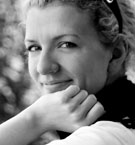
Uta Gelbke
Urban Zero Points - Re-politicizing El Raval
Uta Gelbke is a research assistant at the School of Architecture at Graz University of Technology in Austria. She is a PhD candidate focusing on the relationship between urban public space and social anthropology. She also teaches courses in building technology and architectural design. Uta has worked on a wide range of architectural and urban planning projects in Berlin, Sydney and Melbourne. Her previous research includes socio-cultural studies on Melbourne’s outer suburban areas and urban sprawl. Her publications include conference papers and journal articles.

Dorita Hannah
Constructing Barricades: Politics of the Event and ‘Weak Architecture’
Dorita Hannah is an architect, scenographer and Professor of Spatial Design at Massey University’s College of Creative Arts, where her research focuses on the intersection between space and performance. She has published on trans-disciplinary creative practices, including co-editing Performance Design and a themed issue on Performance/Architecture for the Journal of Architectural Education. Dr. Hannah has practiced as a designer in New Zealand, Australia, London, Prague, Athens and New York, gaining awards and citations for her creative work, She is currently Chair of the History/Theory Commission for the International Organization for Scenographers, Theatre Architects & Technicians, Director of Performance Studies International and on the creative team for the 2011 Prague Quadrennial of Performance Design & Space as commissioner for architecture.
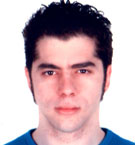
Georgios Karatzas
The making of the historic core of the Greek capital city
Georgios Karatzas graduated from the Glasgow School of Art in 2004, and completed a Masters in Architectural Conservation at the Edinburgh College of Art in 2005, and a Masters Town and Regional Planning at the National Technical University of Athens in 2009. Currently, he is a PhD candidate at the school of Architecture at the National Technical University of Athens. His academic interests focus on the representation of the past in urban space and the related ideological and social constructs. He has collaborated with architectural practices in Athens and Edinburgh, and since 2009 he works as a freelance architect in Greece.
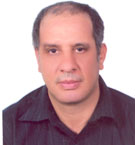
Beshir Kenzari
Those who had no part
Bechir Kenzari is Associate Professor of Architecture at the University of Arab Emirates. He holds a doctorate in Architecture from Georgia Tech and has lectured in the areas of philosophy, design, and digital fabrication. He taught at Georgia Tech, the University of Auckland, and at the University of Arab Emirates. His writings appeared in several international journals such as the JAE, Architectural Theory Review, The Built Environment, and the International Journal of Architectural Computing among others, and he received the ACSA award for best JAE article in 2003. He guest-edited the Built Environment issue on Architecture and the Influence of Other Disciplines, and contributed chapters to Planning Middle Eastern Cities (Routledge, 2004) and The Political Unconscious of Architecture (Ashgate, 2011). He recently edited Architecture and Violence (Actar, 2011).

Lidia Klein
From Post-political to Agonistic: Warsaw Urban Space since 1989
Lidia Klein is a PhD candidate at the Art History Institute at Warsaw University, and in 2010/11 was a Junior Fulbright Visiting Researcher at Duke University. She has published in leading Polish architectural magazines (Architektura), scientific journals (Sztuka i Filozofia, Przeglad Filozoficzno-Literacki) and foreign magazines (A10-new European architecture). Her most recent conference presentations include “Imaginary Spaces. Visualizing Polish Gated Communities” (Popular Art, Architecture and Design conference, Popular Culture Association, San Antonio, Texas, April 2011) and “Sensory Spaces” (Making Sense of Visual Culture conference, Visual and Cultural Studies Graduate Program, University of Rochester, April 2011). In 2010, she curated an exhibition entitled “Re.architecture 10” (Spot Gallery in Poznan and Lodz Design Festival, Poland), showing various architectural interpretations of the notion of “ecology” and its political implications. She teaches contemporary architecture and design at the Institute of Art History, Warsaw University and the School of Form, Poznan, Poland. Her research interests include architecture theory, its relations with history of science and sociopolitical issues.

Donald Kunze
Four Concepts of Virtuality to Reconstruct the Civic in Architecture
Donald Kunze taught at Penn State University from 1984 to 2011. His articles and lectures have engaged a range of topics dealing with the poetic dimension of experience. His book on the philosophy of place of Giambattista Vico studied the operation of metaphoric imagination and memory in landscape, architecture, and art. He developed a system of dynamic notation combining the diagrams of Jacques Lacan with the calculus of George Spencer-Brown and has extended this notation system to a current project, an Atlas of the Obverse, publication anticipated in 2013.
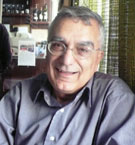
Nadir Lahiji
Is Building the Practice of Dissensus? Architecture Between Aesthetics and Politics
Nadir Lahiji is an architectural critic and educator. He is the editor of the book The Political Unconscious of Architecture: Re-opening Jameson’s Narrative (2011), and the co-editor of Plumbing: Sounding Modern Architecture (1997). He has contributed to several books on architectural theory, among them a chapter in Architecture and Violence (2011), and “L’architecture sous Le regard de la photographie: L’atctualité de Benjamin et ses consequences,” in Spielraum: Benjamin et L’Architecture (2011), as well as essays in journals such as the International Journal of Zizek Studies, Architectural Theory Review, JAE, and ANY. He has taught at Georgia Tech, University of Cincinnati, University of Pennsylvania, Drexel, Penn State, Pratt Institute, and the Lebanese American University.

Francesco Marullo
Notes on Generic Architecture
Francesco Marullo was trained as architect at the Roma Tre University in Italy and obtained an International Master Diploma in Architecture, Urbanism and Building Sciences at the Technische Universiteit Delft in the Netherlands. Since 2006 he worked for OMA/AMO in Rotterdam, LABIC Studio and DIPSU (Department of Urban Studies) in Rome, and DOGMA architects in Rotterdam. He is currently developing a PhD research titled Typical Plan: Architecture of Labour and the Space of Production, within the doctoral program “The City as a Project” at the Berlage Institute in Rotterdam, and actively collaborates with the Technische Universiteit in Delft and the Roma Tre Architecture Faculty. He is a founder member of the collective project TONDO.

Michał Murawski
The Scale of Ideology in Post-Political Warsaw
Michał Murawski is a PhD candidate at Department of Social Anthropology, University of Cambridge (King’s College). His thesis, focusing on the relationship between contemporary Warsaw and the Palace of Culture and Science, is based on fieldwork carried out in Poland between 2009 and 2010. He is particularly interested in examining whether and how non-human, material entities like buildings and streets, as well as allegedly abstract, intangible entities like history, politics and the economy, possess the capacity to exert an autonomous impact on the field of relations between the City and the Palace.
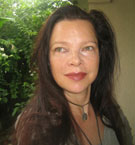
Kimberly Sims
The Subject as Object: Reification and Design in the Age of the Post-Political
Kimberly Sims is Assistant Professor and Program Coordinator of the International and Comparative Politics department at the American University of Nigeria. She received a PHD in Political Theory from the University of Massachusetts Amherst in 2001. Prior to joining the faculty at AUN, she taught at various institutions in the United States, most recently, Trinity College in Hartford, Connecticut. In addition to architecture and aesthetics, her research engages two areas: first, the premises and paradigms constitutive of early capitalist formations; and second, the ways in which such premises and paradigms may be brought to bear on contemporary questions of political and ethical agency, the idea of equality and the discourses surrounding issues of economic fairness in neo-liberal market societies.

Zehra Tonbul
Politics of Renovation: Urban Regeneration: The Case of Tarlabaşı, İstanbul
Zehra Tonbul is a full-time lecturer in architecture at Mardin Artuklu University. After graduating from Istanbul Technical University, she completed an MPhil degree in History and Philosophy of Architecture at the University of Cambridge, where she investigated phenomenology in architecture. Her thesis was a reading of Ottoman palaces as indicators of changing imperial identity. She has worked as an architect and was an editor within the architectural media in Turkey. She has recently publihsed a book on Turkey’s First Civil Hospital Buildings and is currently working on her PhD at Bogazici University.

Koen Van Synghel
Bylex’ Tourist City or Utopia as the Prefiguration of Architecture & Politics
Koen Van Synghel studied architecture & architectural history and theory and currently teaches architecture criticism at KU-Leuven. He curated and designed with antropologist Filip De Boeck the exhibition Kinshasa, the imaginary City, a multimedia-exhibition for the Belgian Pavilion at the Venice Architecture Biennale in 2004, which was awarded the Golden Lion. He has also curated Time festival 2007 and Schets of Schim, an exhibition on architecture & intuition in Ghent. Koen has published Young architects in Flanders in 2001, and Citybranding, Image Building & Building Images in 2002, and Coussée & Goris in 2006. He is co-author of De gesproken Stad in 2005 and The world according to Bylex in 2009. He is currently completing a Phd on Implicit architecture criticism in contemporary art.

Aurel von Richthofen
Muscat Capital Area - Urbanism at the intersection of politics and space
Aurel von Richthofen is an architect whose interests lies in the development of digital tools to analyze, interpret and design urban space. Aurel studied architecture at ETH Zurich where he received his diploma in architecture in 2004 and was awarded the Erich Degen Prize. In 2005, he continued his education in architectural theory and design at Princeton University with a fellowship from the IKEA-foundation. Aurel von Richthofen was Visiting Professor at Ohio State University from 2007 to 2009. He taught seminars at TU Berlin, HTW Berlin and HfG Karlsruhe. Since 2010, Aurel von Richthofen is Assistant Professor at the German University of Technology in Oman. He is also the principal of the architecture firm “aurelVR” in Berlin, Germany.
